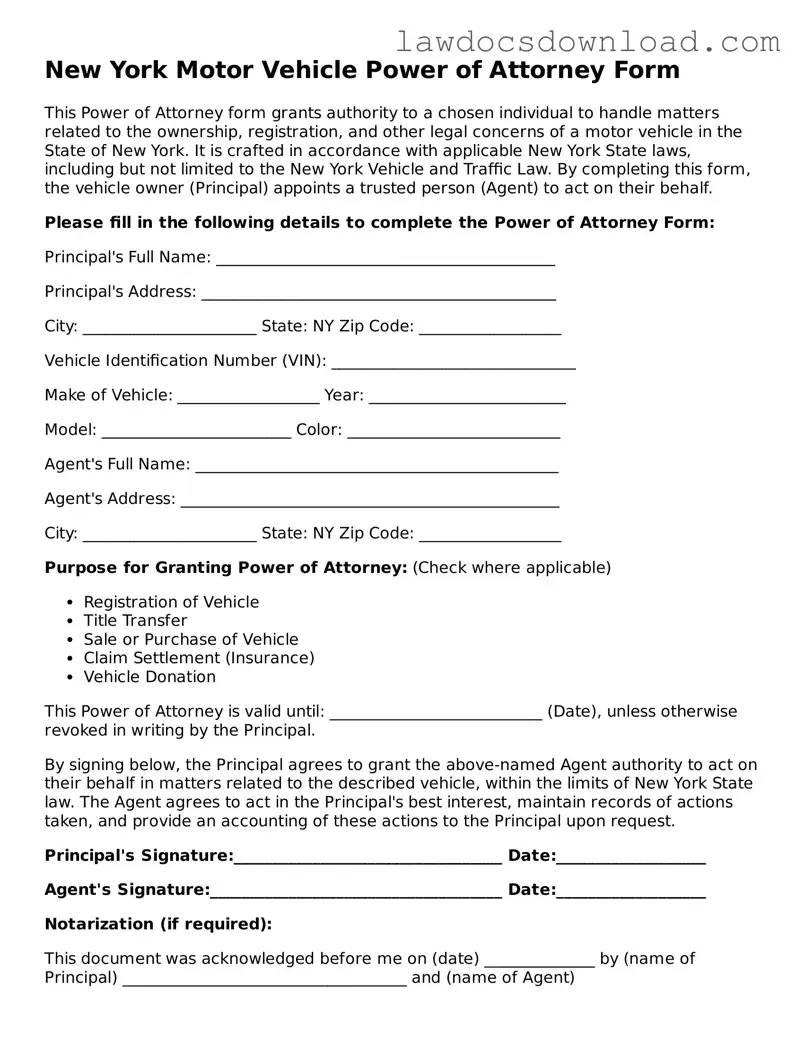Legal New York Motor Vehicle Power of Attorney Form
The New York Motor Vehicle Power of Attorney form is an official document that grants someone the legal authority to act on your behalf in matters related to your vehicle. This can include registering, buying, or selling a vehicle in New York State. It's a crucial form for anyone who needs to delegate these important duties, ensuring transactions can proceed smoothly without your direct involvement.
Launch Motor Vehicle Power of Attorney Editor Here

Legal New York Motor Vehicle Power of Attorney Form
Launch Motor Vehicle Power of Attorney Editor Here

Launch Motor Vehicle Power of Attorney Editor Here
or
Free Motor Vehicle Power of Attorney
Get this form done in minutes
Complete your Motor Vehicle Power of Attorney online and download the final PDF.